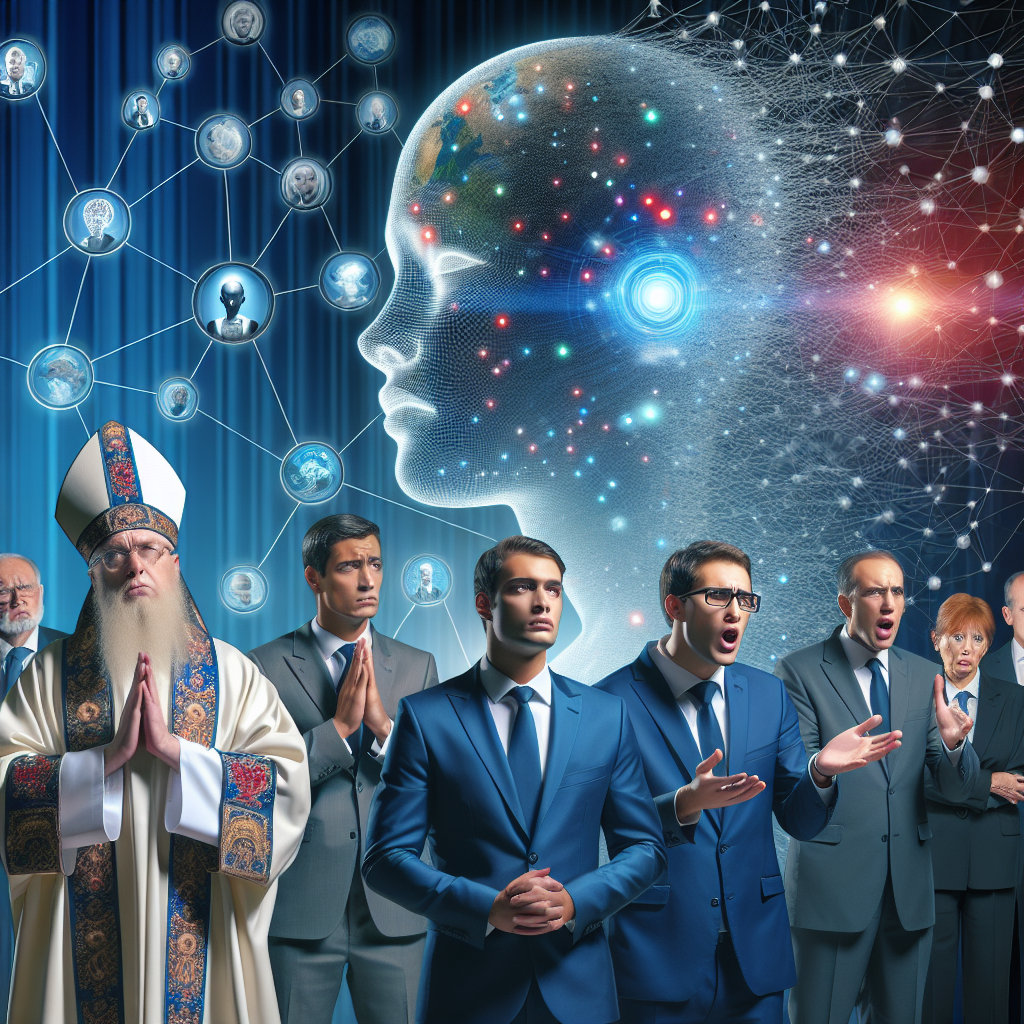The Pope and US regulators have recently issued warnings regarding the potential risks associated with artificial intelligence (AI). These warnings highlight the need for careful consideration and ethical guidelines in the development and deployment of AI technologies.
The Pope’s Concerns about the Risks of AI
The Pope, known for his spiritual guidance and moral authority, has recently expressed concerns about the risks associated with artificial intelligence (AI). In a meeting with top tech executives at the Vatican, he warned against the potential dangers of AI if it is not used responsibly and ethically. The Pope’s concerns stem from the belief that AI has the power to shape the future of humanity, and therefore, it is crucial to ensure that it is used for the benefit of all.
During the meeting, the Pope emphasized the need for AI to be developed and used in a way that respects human dignity and promotes the common good. He expressed his worries about the potential for AI to exacerbate existing inequalities and create new ones. The Pope’s message was clear: AI should not be used to replace human beings or to exploit them, but rather to enhance human capabilities and improve the quality of life for all.
The Pope’s concerns are not unfounded. As AI continues to advance at an unprecedented pace, there are growing fears about its potential negative impact on society. One of the main concerns is the potential loss of jobs due to automation. With AI becoming increasingly capable of performing tasks that were once exclusive to humans, there is a real risk of widespread unemployment and economic inequality. The Pope’s warning serves as a reminder that we must find ways to ensure that AI does not lead to the marginalization of certain groups or the concentration of power in the hands of a few.
Furthermore, the Pope highlighted the ethical implications of AI. He stressed the importance of developing AI systems that are transparent, accountable, and respectful of human rights. There is a need for clear guidelines and regulations to govern the development and use of AI, ensuring that it is aligned with human values and does not infringe upon individual freedoms. The Pope’s call for ethical AI echoes the concerns of many experts who argue that AI should be developed with a strong ethical framework to prevent potential abuses.
The Pope’s message resonates beyond the walls of the Vatican. It serves as a wake-up call for governments, tech companies, and individuals alike. It reminds us that the development and use of AI should not be driven solely by profit or efficiency, but by a genuine concern for the well-being of humanity. The Pope’s concerns about the risks of AI are a reminder that we must approach this technology with caution and responsibility.
In response to the Pope’s concerns, US regulators have also issued warnings about the risks of AI. The Federal Trade Commission (FTC) has expressed concerns about the potential for AI to perpetuate biases and discrimination. They have called for increased transparency and accountability in AI systems to ensure that they do not reinforce existing inequalities or discriminate against certain groups. The FTC’s warnings align with the Pope’s concerns and further emphasize the need for ethical AI.
In conclusion, the Pope’s concerns about the risks of AI serve as a reminder that this technology has the power to shape the future of humanity. It is crucial that we approach the development and use of AI with caution and responsibility. The Pope’s call for ethical AI echoes the concerns of many experts and regulators who are advocating for transparency, accountability, and respect for human rights. As AI continues to advance, it is essential that we prioritize the well-being of humanity and ensure that AI is used for the benefit of all.In conclusion, both The Pope and US regulators have issued warnings regarding the potential risks associated with artificial intelligence (AI). These warnings highlight concerns about the ethical implications, job displacement, and the potential for AI to exacerbate existing inequalities. It is important for policymakers, researchers, and industry leaders to address these concerns and ensure that AI technologies are developed and deployed responsibly, with a focus on human well-being and societal benefits.





